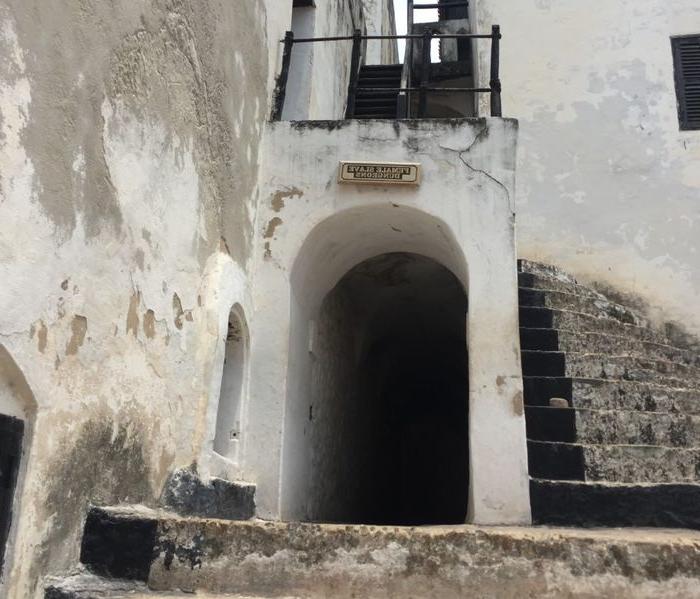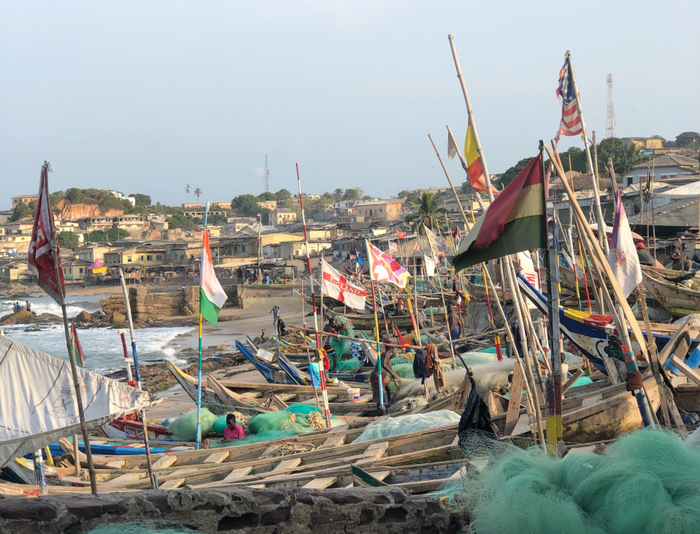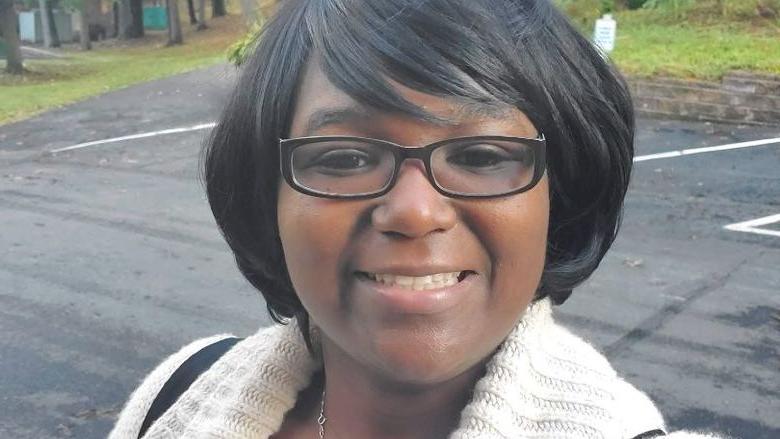
Alisha Walters, assistant professor of English, left, and Christina Riehman-Murphy, reference and instruction librarian at Penn State Abington, spent 10 days in Ghana.
ABINGTON, Pa. — Two Penn State Abington faculty members traveled to Ghana intent on establishing a new study abroad option for students. Little did they know how nine days in the West African nation would upend their psyches.
“My time in Ghana blew my mind,” said Alisha Walters, associate professor of English. “I am a black scholar who researches and teaches the histories of race and nationalism in the 19th century and their connections to our current society. Yet my years of research and study still could not fully prepare me for the powerful emotional and human effects of visiting Ghana and meeting some of its amazing people.”
Walters and Christina Riehman-Murphy, reference and instruction librarian in University Libraries, visited villages and toured historic sites, and these experiences drove moments of connection and confrontation of historical trauma.
“The trip to Elmina slave castle changed me forever,” Riehman-Murphy said. “It was there that slavery went from something I’d read about in history books to a profoundly visceral knowledge that in standing on floors that had been soaked with the blood, tears and excrement of West African peoples, I was standing on the sins of my ancestors, sins that cannot be reconciled by time alone. I left Ghana with much to sit with personally that I continue to reflect on.”
As a woman of color with a vibrant Caribbean heritage, Walters never felt she lacked meaningful connections to those cultural traditions until she experienced the slave castles.
“Seeing the brutal holding cells where my ancestors were caged and stepping through the infamous 'Doors of No Return,' where the enslaved were forced onto ships that would make the journey across the Atlantic Ocean, were almost out-of-body experiences for me,” she said.
“As I navigated my own feelings at these sites, I thought of how powerful such visits would be for our students — the black ones, absolutely — but equally powerful for all of our students,” Walters continued. “Sites like the slave castles memorialize an experience that has shaped the Americas in ways that reverberate into our daily, lived experiences. In the Americas, the African presence is in our music, our speech, and our food.
“We went to Ghana to find sites of meaningful, enriching experience for our students, and we came away with much more than we could have imagined.”
The Abington campus community supported the pair before they embarked on their journey. A student who is a native Ghanaian and the African Students Organization shared recommendations for food and places to visit, along with a presentation highlighting the country’s unique cultural and historical heritage. But Riehman-Murphy found that internally, she still wasn't quite ready for the experience.
"Despite conversations and research, being in Ghana forced me to explore the depths of my own cultural and historical ignorance in ways I hadn’t quite prepared for,” she said.
Walters and Riehman-Murphy arrived in the capital city of Accra for the weeklong exploratory trip as part of the process of revising the curriculum for Walters’ English 182A: Literature and Empire course. The goal was to add a short-term (about one week) study abroad piece to the class for the spring 2021 semester.
Walters and Riehman-Murphy believe that nothing can substitute for experiential knowledge of materials and texts analyzed in the classroom. This reimagined English course will offer firsthand knowledge of the beautiful and sometimes traumatic cultural contexts that surround the creation of the literature and cultural documents the students will study.
"We seek to bring a range of learning materials and forms of cultural knowledge to this course. Not only will our students be reading works by West African authors who they might meet in Ghana, but students will also engage with local students in Ghanaian universities," Riehman-Murphy said. "Moreover, Abington students in this study abroad course will engage with and learn from people living in villages near Ho, a city in the Volta region of Ghana."
A clear direction for the English course emerged from their journey to Ghana.
"We will customize the curriculum to look at how global narratives and place-based research intersect with a shared immersive travel experience to develop global literacies for Abington students," said Riehman-Murphy.
For more information about embedded programs — courses that include short-term travel to another country with a Penn State Abington faculty leader — and other study abroad options, connect with the Abington Office of Global Programs.
About Penn State Abington
Penn State Abington provides an affordable, accessible and high-impact education resulting in the success of a diverse student body. It is committed to student success through innovative approaches to 21st century public higher education within a world-class research university. With nearly 4,000 students, Penn State Abington is a residential campus that offers baccalaureate degrees in 21 majors, undergraduate research, the Schreyer honors program, NCAA Division III athletics and more.





